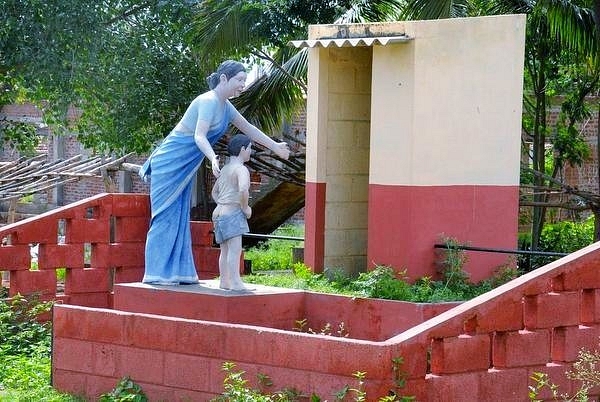
Many ODF Claims Premature; It Will Be A Work-in-Progress Long After 2019
It is now apparent what state governments and local bodies mean when they declare themselves open defecation-free.
It means they may be succeeding in building toilets – a necessary condition to become OD-free – but they are far from successful in changing mindsets.
As with any top-down scheme, where targets set from the top end up being gamed by those charged with meeting them, it seems likely that the 2019 target of making India open defecation-free (ODF) may be met only on paper. Many states, districts and villages have declared themselves ODF, and as of six months ago, 84 per cent of urban India has also claimed to be ODF-complaint. The 2019 target has been set by Prime Minister Narendra Modi to coincide with Gandhiji’s 150th birth anniversary.
On Wednesday (18 April), Maharashtra Chief Minister Devendra Fadnavis claimed that his state had achieved 100 per cent ODF status when anyone walking along the railway tracks or driving near slum areas can see for himself that this claim is far from true. Despite big achievements, false claims are making a mockery of the idea.
In fact, Fadnavis contradicted himself when he also announced that campaigns will be launched to encourage citizens to use toilets. Having built 60 lakh toilets over the last three-and-a-half years, his government will now encourage people to use them. The Times of India quotes him as saying: “now, under the Swachh Maharashtra Abhiyan, we will encourage other campaigns, like ‘Darwaza Bandh, Bimari Bandh’, and ‘Good Morning Squad’, to encourage citizens to use toilets.”
It is now apparent what state governments and local bodies mean when they declare themselves open defecation-free. It means they may be succeeding in building toilets – a necessary condition to become OD-free – but they are far from successful in changing mindsets.
It is worth recalling that the Prime Minister’s Swachch Bharat Mission has seen goal-posts changing. It began with ministers and brand ambassadors sweep streets, suggesting that it was about cleaning up India. Then the scheme morphed into a more achievable target of making India OD-free, since this could be driven purely by a toilet-building exercise.
One point needs reiteration: building toilets and declaring India ODF are two different things. One requires investment to create the infrastructure, the other requires a huge change in people’s habits.
This is not to declare ODF a failure, but that it is going to remain a work-in-progress even after 2 October 2019. Just as the small family norm took decades to become an objective reality – it needed development to act as a contraceptive – ODF too is related to development. One can launch educative campaigns to make people use toilets or not throw garbage on the streets, but compliance requires ordinary citizens and municipal authorities to feel sufficiently concerned about their environs to start acting on its clean-up. This concern comes naturally when citizens can think beyond daily earnings for survival. Right now, we are far from achieving that reality. No poor citizen can be bothered about not throwing banana peels where he eats the fruit when he can’t be sure about his next meal.
This does not mean governments and local bodies should not try to launch educative campaigns to use toilets and littering streets, but that it will take time for the message to sink it, and for people to start feeling a sense of pride or shame about their neighbourhoods. Pride and responsibility comes after one moves beyond the survival stage of thinking.
One does not have to wait for India to become a middle-income country before we become cleaner. But for genuine progress along the path to cleanliness, there are some prerequisites.
One, more powers need to be devolved to city governments, so that they are made accountable to the people. Right now, cities are effectively run by bureaucrats answerable only to state governments. Most cities do not have empowered mayors who are called to account for failures to keep their cities clean.
Two, the right to declare states or cities as OD-free should not rest with state governments or local bodies, but with third parties. Some progress has already been made in this direction, with self-certifications on ODF being subject to verifications by other authorities and third parties, but state governments seem to be jumping the gun in order to claim political credit prematurely. They should be free to seek the certification, but not make dubious claims before they are verified. Claims made by some metros are now being referred to the urban development ministry for reconfirmation.
Three, key stakeholders have to be part of any process of change. Change can be initiated and inspired from the top, but effective execution needs cooperation and buy-in from the people these policies are intended to serve. So far, it is not clear that most ODF schemes are driven from the bottom-up. Without this essential ingredient, claims will not match reality.
So, while Modi deserves huge praise for bringing a critical health and social issue to the fore, his success depends on how stakeholders are brought directly into the picture by states and cities, not to speak of districts and village panchayats.
In the meanwhile, those making ODF claims ought to consider one simple point: why make false claims when the scheme is dedicated to the man who placed truth above every other virtue?